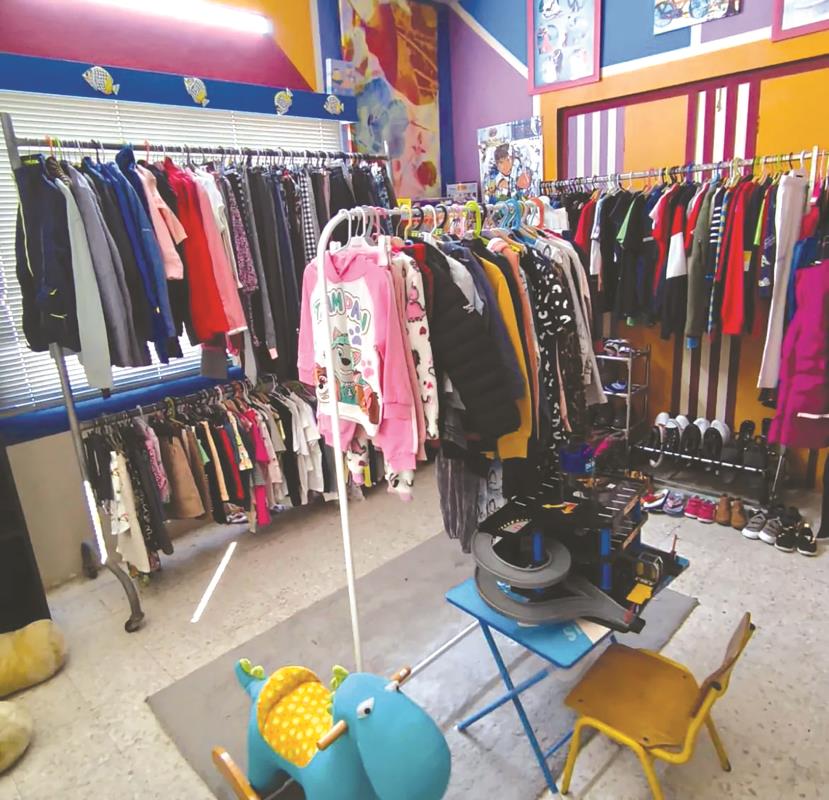
With lockdown conditions imposed on most of the world, the majority of daily routines have come to halt.
But, while people have been advised to keep activities such as food shopping to a bare minimum, supermarkets remain one of the few places still open during the coronavirus outbreak.
As notoriously busy places that are filled with products touched by a number of people, consumers have become increasingly concerned about the risk of exposure to the virus while doing their shopping, with many taking precautions such as wearing gloves and face masks.
Meanwhile, others have become concerned with coming into contact with other shoppers and their possessions, including reusable shopping bags.
So much so, that some places around the globe, including San Francisco, have chosen to ban reusable bags altogether in an attempt to protect both customers and supermarket employees from spreading the virus.
But, just how much of a risk do reusable shopping bags pose and what precautions can you take? Here is everything you need to know.
- Can coronavirus live on a reusable bag?
Like the majority of cold and flu bugs, health experts state that the virus is spread through droplets transmitted into the air from coughing and sneezing, which people nearby can take in through their nose, mouth or eyes.
However, if the droplets land on surfaces and are picked up on the hands of others, it can spread further.
While it remains relatively unknown as to how long the coronavirus can persist on reusable bags, one study has suggested that it could stay viable for up to three days on plastic.
A study conducted by the National Institutes of Health showed that the virus could survive in droplets for up to three hours after being coughed out into the air.
However, the study added that the virus could survive for longer on cardboard – up to 24 hours – and up to two to three days on plastic and stainless-steel surfaces.
- Have reusable shopping bags been banned from supermarkets?
Across the United States, a number of states have chosen to temporarily ban reusable bags in minimise the risk of transmitting Covid-19.
On 31 March, New Hampshire became the first state in the US to temporarily ban reusable bags during the pandemic, closely followed by San Francisco which introduced new ordinance to reinforce existing social distancing protocols by restricting customers from bringing their own bags, mugs, or other reusable items to essential stores.
“With identified community transmission, it is important that shoppers keep their reusable bags at home given the potential risk to baggers, grocers and customers,” said Chris Sununu, governor of the State of New Hampshire.
- What is the UK’s advice on reusable shopping bags?
In October 2015, the UK government introduced new laws which required large shops to charge 5p for all single-use plastic carrier bags.
The measures were brought in to help reduce the use of single-use plastic carrier bags, and the litter they can cause.
- What are UK supermarkets doing to encourage social distancing?
While there is currently no evidence so far to suggest that using reusable grocery bags have been responsible for spreading the novel coronavirus, the government has suspended charges for bags used in online grocery deliveries in England.
It is hoped that the change will help speed up deliveries and also reduce the risk of contamination.
The government states that this does not apply to single-use bags provided in store or for other types of online delivery, and that it is a temporary measure due to the Covid-19 outbreak. It expects the measure to end on September 21.
However, Andrew Opie, director of food and sustainability at the British Retail Consortium, said that while retailers are constantly reviewing all of their services in line with the latest government guidance, customers should continue to use reusable bags.
“There is little evidence to suggest risk associated with virus being spread via goods, so it is safe to use these items.” Mr Opie said.
“We continue urge all customers to follow Public Health England’s advice: wash hands frequently with hot water and soap for 20 seconds or use alcohol hand gel, and be aware of safe coughing etiquette.”
- What can you do to reduce the risk?
Instead of ditching reusable bags altogether, a better way to reduce the spread would be to limit shopping trips to an absolute minimum.
"If you can go shopping once instead of twice, or even offer to shop for a neighbour at the same time, that would be helpful,” explained Mr Opie.
- Should you clean your reusable bags?
Dr Donald Schaffner, a microbiologist and expert on food safety from Rutgers University, adds that anyone who is concerned could also consider storing their grocery bags in their car and washing them on a regular basis.
“If you're concerned that your bags might have coronavirus on them, you can wash them. You should also wash your hands after you have finished putting all your groceries away. This was also good advice even before pandemic.”
Antibacterial wipes and disinfectant sprays can be used to clean most reusable bags before storing them away, while sturdier versions can also be washed using warm, soapy water.
- What precautions should you take at the supermarket?
Visiting supermarkets does pose some risk as you are mixing with other members of the public.
This is why it is important to adhere to the government’s guidelines on social distancing by ensuring that you keep at least two metres from others. This advice applies to both inside the store and in the external public area where you may need to queue.










































































